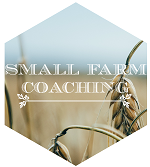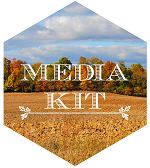I have a bit of a pride issue. It sneaks in most of the time and settles itself so softly on my heart that I don't realize it's there until I get hit over the head by the fact that -- I'm not always right. Hmm. Not always right? Turns out it's true.
This fault is most apparent when it comes to medical treatments for livestock. I love using natural treatments; herbs and that sort. Once upon a time I was 100% for the drugs at the feed store... I was a 4-H'er; 15 years old and dreaming of a degree as a veterinarian. I could quote you the names, dosages, and dosing methods of almost every drug on the Wilco shelves. Learning about what was in those dark brown, glass bottles fascinated me. Using needles on stock was even more fun. I could argue the merits and pitfalls of the different deworming pastes, and knew what vaccinations to give and when. When I was 17, I broke my wrist and was stuck inside for the next three months; I was useless outside, so I buried myself in books and began finding a new world... One that used plants right outside my door to treat animals instead of strange sounding ingredients inside plastic tubes that cost a lot of money. Herbs were completely foreign to me at that time, but my curiosity led me further and further down that path and I slowly peeled back the truth on just what the long term effects can be when using those drugs. I felt betrayed almost; I loved those glass bottles... Those needles, those long words, the long shelves with so many choices of treatments. And now I was learning that there was a gentler way to treat animals. Was I wrong all along in using those drugs?
Then the pride snuck in. Oooh yes, I was going to be all High and Mighty now with my herbs. I threw out my drugs. Threw out the injectable iron and B12. Threw out the propylene glycol. Threw out the needles and syringes. In their place came garlic, slippery elm, raspberry, kelp, and other plants.
In the summer of 2010, I faced the hardest summer I've seen yet. It was wet that year... So wet. And my goats were dying off left and right for no apparent reason. I treated them with garlic and cayenne, I increased their kelp, I wormed them with my herbal dewormer... Nothing worked. They kept dying. I was burying carcasses every week. Four feet down in the dirt. The vets didn't know what was going on either; the fecal samples were testing clean, there were no definitive symptoms to fit anything. Then one vet finally figured the mystery out: my herd had liver fluke worms, but they had been missing the eggs in the samples up until now. Turns out that the liver fluke was rampant that year and a lot of people lost stock. Knowing that I was dealing with worms, I started deworming my goats again, using the strongest concoction I could muster. It still didn't work. The fluke had too good of a hold. I broke down and bought a powerful dewormer called Valbazen. The changes in the herd were dramatic, and almost overnight. I went from a herd that looked ready to drop dead, to normal, perky animals that were gaining weight almost scarily fast. Pride goes before a fall...
When I first noticed that Mattie was getting sick, I pulled out my herbs and began treating her as best as I knew how. I didn't want to resort to drugs unless I had to. My pride and stubbornness quite possibly cost me my cow. The herbs weren't strong enough to take down the pneumonia that took such a powerful hold of her, and the time wasted there was critical. The night that the vet came out to pull her calf, he left me with an antibiotic to try and treat her with. His words were that if this didn't work, then nothing would. It was the most powerful drug on the market, and not even meant for dairy cattle. At that point I didn't care; I wanted my cow to live, so by Jove give me everything you've got Doc! Y'all know the end of that story. Mattie died two days later. And I was left wondering if she would have lived if I had been smart enough to use antibiotics right at the beginning. Pride, thou art mortally wounded.
After that, I realized that I needed to make some changes. I still knew the power of herbs, but I was learning that the worlds of herbs and drugs are not something to argue between. There should instead be a balance here, in which there is a time and place for each one. We need to mesh these worlds.
My feelings are the same where Big Ag is concerned. It is so easy for me to get pious and look down at the CAFO's and the mono-crop farms that grow nothing but GMO corn and soy. And then a year ago I came to the decision that I was done judging these things when I didn't know the full story. And folks, when you strip away the judgmental feelings, there is instead a feeling of curiosity. I began asking sincere questions about this large style of farming. Why do people do it? What are the people behind these practices really like? Human nature has a tendency to discard what doesn't work, so there must be logic somewhere in the fabric weave of these farms, that they should still be here and that people should still be building confinement barns. One conclusion that I've come to is that there is still a need for these large farms. Yes, yes, I see your hackles raising. Bear with me here. Not everyone can pay $10 for a gallon of milk, or $4 for a pound of ground beef, or $25 for a single chicken. Something needs to happen here: Either the population suddenly needs to become wealthier so as to afford food from small farms, or the government needs to start subsidizing us small farmers. And at present, I don't see either happening. The Big Ag farms may be causing harm with their GMO's, manure lagoons, and e.coli bouts, but at this point in time, they are our middle man. In the end, we need to find a balance between these two worlds of the Big Farmer and the Small Farmer. One is dirt cheap and flawed, but the other is expensive and not always possible for low income families. I've had the privilege to get to know some big ag farmers and hearing their stories is always amazing. Many times these people love what they do just as much as we small farmers. Many of them truly feel that planting GMO corn and spraying everything with Roundup Ready is the right thing to do. I'm still working on finding the balance here; still eagerly seeking answers to my questions and desiring to get to know this unknown world of confinement operations and monocrops. I'm not saying I'm for it, but I refuse to say I'm 100% against it until I know all the sides to this. I don't want to judge a matter until I can see it from the other person's point of view.
This afternoon, Ellie went down. That's bovine jargon for "fallen and can't get up"; and it's a serious thing when a cow CAN'T get up. We had been through this once before already, so I treated her the same way: I gave her a quart of blackstrap molasses and about a 1/2 cup of kelp meal. I was basically trying to rev her engine and get some energy in her. An hour later, she looked no better. I gave her an injection of Vitamin B Complex and wondered what else I could do. Then a friend asked if I had dosed her with the propylene glycol that she had given me just a couple weeks earlier. Duh... I had forgotten about that stuff. As I pulled out the plastic jug of clear, sticky syrup, I thought about how even just a few months ago I totally would have balked at this idea. Have you ever done the research on propylene glycol? Don't do it unless you're adamant that you'll never, ever use it on livestock. But I was now at the point where I didn't care. I would do what I needed to for this cow, and I would hit her hard with antibiotics if it came to that. I had tried my molasses and kelp, and now I was willingly trying the next step. And wouldn't you know it? The glycol worked like a charm. Ellie got up all by herself in about 40 minutes.
It was at that moment, seeing my cow walking around the pasture, that I could only shake my head at myself and quietly say, "God, take my pride away!" There is a reason that there are still drugs, antibiotics, and vaccinations in feed stores. They work. I am still aware that these can still be quite harmful to an animal, but I think when used in tandem with safer, gentler treatments such as herbs, we really find that beautiful balance to all this. Yes, God made herbs and made them perfectly. But I think God also gave enough genius to man to figure out how to make those drugs. Human tendency is to choose a side and passionately defend it. What if we're really supposed to find the middle ground?
I think my pride level is pretty much in the dust. Next time I'm at the library I'm going to check out the copy of Merck's Veterinary Manual and start reading through that again, right along with my Herbal Handbook for Farm and Stable. There is a time for everything... For herbs and for drugs. For big farm and for little ones.
I'm excited to learn the stories behind them all...








6 comments:
You knocked me over the head. Thank you! Hopefully none of my goats 'go down' but if they do I'll keep what you said in mind. Thank you for sharing. =)
Tasha
What you said about those in the population that cannot afford small farm product struck me. I work in a volunteer group that takes left over produce from the farmers markets to low income housing. The stories that the people tell are really devastating, and it is really frustrating to know that the only food that they have access to is quick TV dinners full of god knows what. And when addressing the disparity between wealth and the issue of food waste in this country... it is such a huge issue that the use of drugs, pesticides and herbicides are really just part of the bigger problem. You cannot mass produce beef and corn without these things, but, in turn, what has it done to our agriculture and environment? And then it begs the question, are we too far gone to undo it?
“Much of complementary and alternative medicine (CAM) is offered either as an addition to conventional, science-based treatment or in situations in which conventional therapies are unavailable or ineffective. This doesn’t excuse offering treatments that haven’t been properly tested, and it doesn’t mean such therapies can’t do harm. However, such an approach at least avoids the harm that can come from delaying or rejecting effective treatment.
However, sometimes CAM providers actually believe their practices are an appropriate and effective substitute for conventional medicine, even in the case of serious disease. This attitude is truly inexcusable when, as is usually the case, there is no sound evidence to support the belief and when irrational and inaccurate denigration of conventional treatments is used to scare people away from medicine that could really help their pets.” -from the Skeptvet blog.
I agree that there needs to be a balance between CAM (herbs and such) and conventional medicine in livestock. CAM is most often not scientifically proven to work and most evidence is merely anecdotal based on personal observations. Conventional medicine is rigorously tested through multiple trials. Yes, the medicines contain powerful chemicals, but parasites, bacteria, and viruses have evolved powerful ways to infect and reproduce. Don't let your love for herbs replace a proven cure, even if it is conventional.
As I have learned so much from the small farmers here and about the foods that I have been buying from the supermarket and eating all my life, I have made what changes I could to move to farm products where I understood the methods used. Where we can, we will try to remove what chemicals we can. But, as you point out, there are times they ARE needed.
I like what Anonymous said... "You knocked me over the head" Balance... I agree we need balance.
I have read a little in the past about GMO's and their effects on people. Recently I watched Genetic Roulette that touches on the effects they have on animals. Strange things going on - not sure if CAM alone can heal this! Check out this video - it is well over 1 hr long so if you don't have time to watch it all start at 28:50 where they start to talk about animals. It makes you think about where your feed comes from! http://www.youtube.com/watch?v=taLw2LhPoTU
Post a Comment